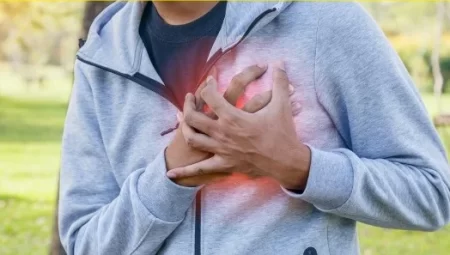Heart arrhythmia (an irregular heartbeat) is a common condition that can range in severity from harmless to life-threatening. For those with the more serious form of this condition, treatment is often recommended. But just what treatment is best for you? This can depend on many factors such as your age and the type of arrhythmia. Below are 5 common treatments:

Medication
A doctor will usually first prescribe medication to help treat an irregular heartbeat. There are a few different medications that can be prescribed to regulate the heart rhythm. These include:
- Beta blockers
- Calcium channel blockers
- Antiarrhythmic agents (such as amiodarone)
These medications work in different ways. For example, beta blockers slow the heart rate, while antiarrhythmic drugs help to restore a natural rhythm. A doctor will be able to recommend the best medication for your circumstances. They will also be able to discuss dosage instructions and side effects.
Pacemaker
A pacemaker is a small device that is implanted into the chest to help regulate a patient’s heartbeat. When an irregular rhythm is detected, it sends an electric impulse to the heart. Individuals with conditions like bradycardia are often recommended for these devices.
Implanting a pacemaker involves going under general anaesthetic. Afterwards, you will need some time to recover and may have to permanently restrict certain activities. A cardiologist will be able to discuss the procedure and risks in detail, as well as whether you are a suitable candidate.
Cardioversion
Individuals with atrial fibrillation or flutter may be recommended a treatment called cardioversion. This is a medical procedure used to restore the heart’s normal rhythm. There are two ways of doing this:
- Electrical cardioversion: This involves using an electrical shock to the heart administered through paddles or patches.
- Pharmacological cardioversion: This involves administering medication and is less invasive.
Cardioversion can be an effective treatment for many individuals, but does not always have permanent effects after one treatment. Therefore, additional treatments may need to be carried out throughout an individual’s life.
Catheter Ablation
For certain types of arrhythmia such as supraventricular tachycardia and atrial fibrillation, catheter ablation may be advised. This is a more invasive procedure that involves feeding a long flexible tube called a catheter through a blood vessel to the heart. Radiofrequency or cryotherapy is then used to destroy small areas of heart tissue that are likely to be causing the arrhythmia.
This procedure does come with greater risks, but may be necessary in serious cases. An experienced surgeon will be able to work out the best way of accessing the appropriate section of the heart and how to best treat the arrhythmia.
Weight Loss
Sometimes no medication or procedure is required to fix heart arrhythmia. An irregular heartbeat may simply be caused by lifestyle choices – being obese and making choices such as eating unhealthily and smoking can increase your risk of this condition.
By taking steps to live more healthily and lose weight, you could naturally regulate your heart rhythm without the need for any other treatment. This is usually only the case with milder cases – serious forms of arrhythmia will need more than dieting and exercise to treat.






